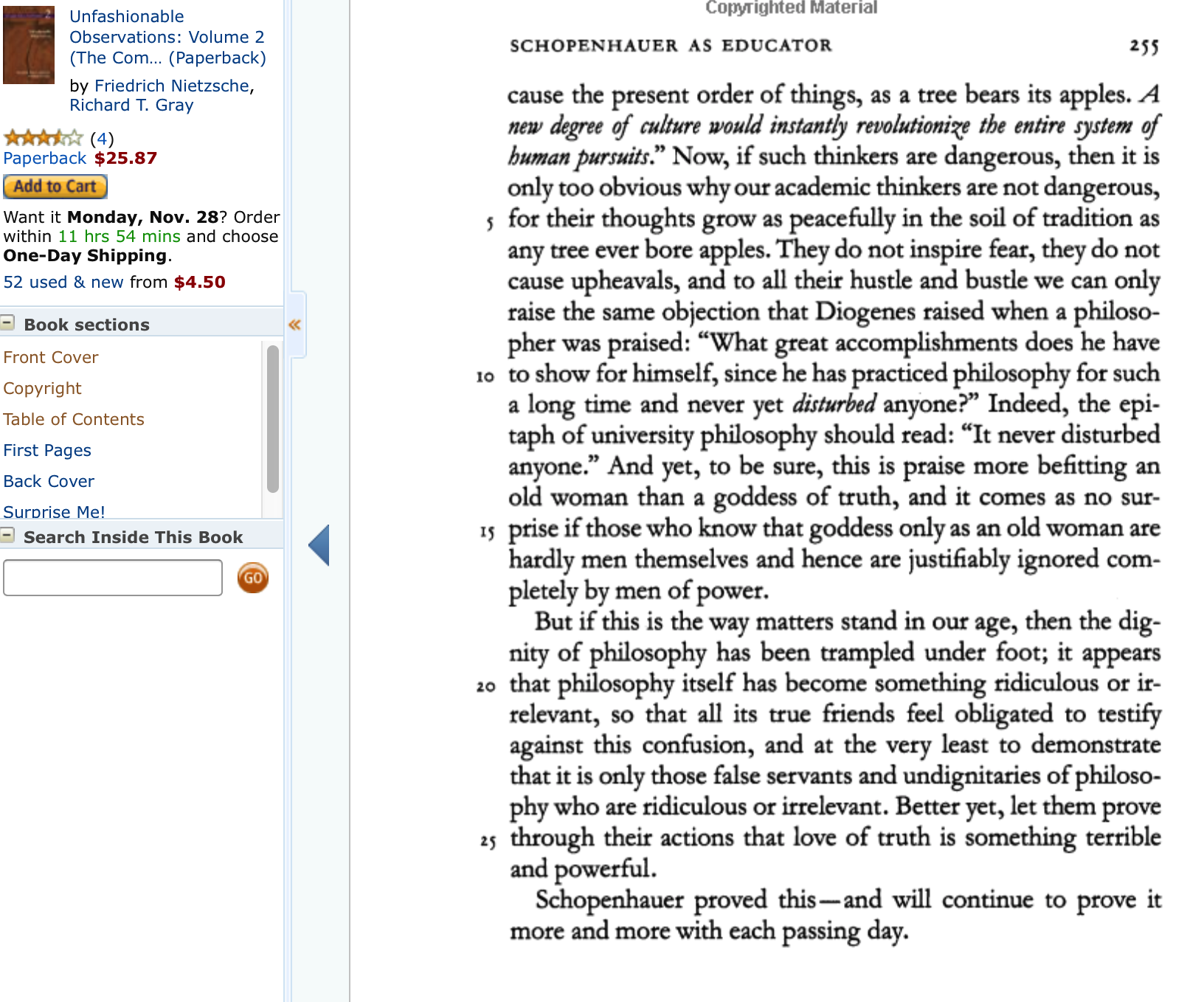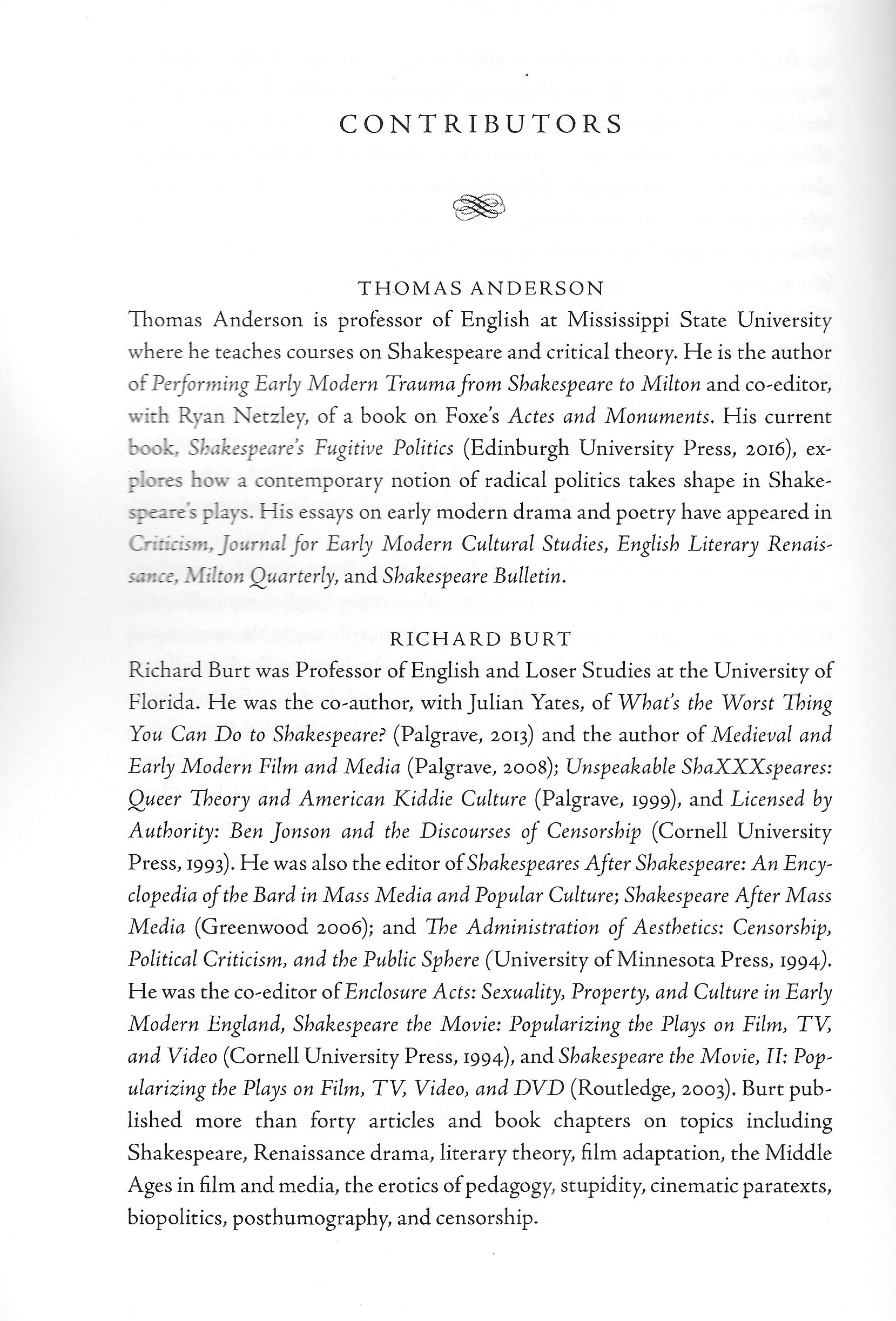Faute de Lecture / La séance continue*:
Psy-tation and Spectres of Authorship in Sterne, Derrida, Shakespeare, de Man, Browne, Shelley, Coleridge, and Rousseau
No cell phones, ipads, or laptops in use during class.
Email all work for the course to me at [email protected]
LIT 4930 Section 2A34
T 4, R 4-5
TUR 2333
This course partially fulfills requirements for the Loser Studies Track in the English Department
Faute de Lecture / La séance continue*:
Psy-tation and Spectres of Authorship in Sterne, Derrida, Shakespeare, de Man, Browne, Shelley, Coleridge, and Rousseau
Fall 2017
Turlington 2333
|
Due the Day Before Each Class: and / or C. Three shots with three film analysis terms MUST READ THIS LINK! Periods T4 , R 4-5 For God's sake, Mr. Storyteller, you ask, where are they going? And I answer: for God's sake, Reader, does any of us know where we're going? Where are you going? --Denis Diderot, Jacques the Fatalist, 41 With all this, Madam,—and what confounded every thing as much on the other hand, my uncle Toby had that unparalleled modesty of nature I once told you of, and which, by the bye, stood eternal sentry upon his feelings, that you might as soon—But where am I going? these reflections crowd in upon me ten pages at least too soon, and take up that time, which I ought to bestow upon facts. --Laurence Sterne, Tristram Shandy
|
It’s time for you to take a You-Turn Please email me only to send me class assignments. Otherwise, please talk to me in person after (not before) class or during office hours. Office: 4314 Turlington Hall Office Phone 352 392-6650 Office Hours: after class, and by appointment The current version of this website is the binding one, if you are taking this course. David Bowie - Cracked Actor - Live at the Universal Amphitheatre - 09/05/1974
Consider the difference between "learned outcomes" and "learning outcomes." Field of Vision - Best of Luck with the Wall Ludovico Einaudi - "Elegy for the Arctic" STEAM (not STEM) The "A" stands for "Arts," as in Liberal Arts.
Missing UF Faculty (mostly from English) "Leave Your Laptops at the Door to My Classroom" Toni Visconti on producing David Bowie's "Heroes" https://www.youtube.com/watch?v=9ClNGJXUWvk&feature=youtu.be Classsroom as Studio / Studium David Bowie - some of his musicians talk about various songs Reading by Chance: Sortes_Vergilianae Goldberg Variations Complete (J.S. Bach BWV 988), with score, Kimiko Ishizaka piano W.K. Wimsatt, The Verbal Icon: Studies in the Meaning of Poetry (1954) "When Is Variation Elegant?" Have You Seen
|
Should I take a class with Burt? Learning a Lot about a little and a Little About a Lot Burt is not crazy! VICE CENSORS Better to Burt Out than Fade Away "Why Teach What You Already Know?" "I want to pay tribute to his memory here and to recall all that I owe to the trust and encouragement he gave me, even when, as he one day told me, he did not see at all where I was going. That was in 1966 during a colloquium in the United States in which we were both taking part. After a few friendly remarks on the paper I had just given, Jean Hippolyte added, “That said, I really don’t see where you are going.” I think I replied to him more or less as follows: “If I clearly saw ahead of time where I was going, I don’t really believe that I would take another step to get there.” Perhaps I then thought that knowing where one is going may no doubt help in orienting one’s thinking, but that it has never made anyone take a single step, quite the opposite in fact. What is the good of going where one knows oneself to be going and where one knows that one is destined to arrive? Recalling this reply today, I am not sure that I really understand it very well, but it surely did not mean that I never see or never know where I am going and that to this this extent, to the extent that I do not know, it I is not certain that I have ever taken any step or said anything at all." --Jacques Derrida, "Punctuations: The Time of a Thesis," in The Eyes of the University, 115
|
I could while away the hours, conferring with the flowers, ----ing with the rain.
Interrogating Texts Six Reading Habits to Develop
Reading Strategies
Bill Readings, The University in Ruins
I am sorry for the boy or girl, or man or woman, who has never been touched by the spell of this mysterious sensorial life, with its irrationality, if so you like to call it, but its vigilance and its supreme felicity. The holidays of life are its most vitally significant portions, because they are, or at least should be, covered with just this kind of magically irresponsible spell.
And now what is the result of all these considerations and quotations? It is negative in one sense, but positive in another. It absolutely forbids us to be forward in pronouncing on the meaninglessness of forms of existence other than our own; and it commands us to tolerate, respect, and indulge those whom we see harmlessly interested and happy in their own ways, however unintelligible these may be to us. Hands off: neither the whole of truth nor the whole of good is revealed to any single observer, although each observer gains a partial superiority of insight from the peculiar position in which he stands. Even prisons and sick-rooms have their special revelations. It is enough to ask of each of us that he should be faithful to his own opportunities and make the most of his own blessings, without presuming to regulate the rest of the vast field.
On a Certain Blindness in Human Beings
--William James
In this respect, he [Diagoras the atheist [1] ] rightly replied, who, when he was shown, on tablets hung up in a temple, those who had given votive offerings so that they might be saved from the perils of shipwreck, and was pressed for an answer whether he nevertheless denied the power of the Gods, asked in his turn ‘And where are those shown who died after they had called on the Gods?’
This is more or less the reason for all superstitions, such as [belief] in astrology, in dreams, in the fates and suchlike, in which men delight; they pay heed to those that come to pass but, on the contrary, when they are false – which happens much the more often – they neglect them and pass them over.
And this evil creeps, persistently and most subtly, into the philosophies and the sciences, in which that [opinion] which is once accepted infects all the rest (even though these are much better established and more powerful) and reduces them to agree with it.
THE NEW ORGANON OR TRUE DIRECTIONS CONCERNING THE INTERPRETATION OF NATURE Francis Bacon 1620
(3) Antiquities, or remnants of history, are, as was said, tanquam tabula naufragii: when industrious persons, by an exact and scrupulous diligence and observation, out of monuments, names, words, proverbs, traditions, private records and evidences, fragments of stories, passages of books that concern not story, and the like, do save and recover somewhat from the deluge of time.
rough drafts of history; and antiquities are history defaced, or some remnants of history which have casually escaped the shipwreck of time.
https://ebooks.adelaide.edu.au/b/bacon/francis/b12a/chapter10.html
Yea, if through all the world in finite tale
Be tossed the procreant bodies of one thing,
Whence, then, and where in what mode, by what power,
Shall they to meeting come together there,
In such vast ocean of matter and tumult strange?-
No means they have of joining into one.
But, just as, after mighty shipwrecks piled,
The mighty main is wont to scatter wide
The rowers' banks, the ribs, the yards, the prow,
The masts and swimming oars, so that afar
Along all shores of lands are seen afloat
The carven fragments of the rended poop,
Giving a lesson to mortality
To shun the ambush of the faithless main,
The violence and the guile, and trust it not
At any hour, however much may smile
The crafty enticements of the placid deep:
Exactly thus, if once thou holdest true
That certain seeds are finite in their tale,
The various tides of matter, then, must needs
Scatter them flung throughout the ages all,
So that not ever can they join, as driven
Together into union, nor remain
In union, nor with increment can grow-
But facts in proof are manifest for each:
Things can be both begotten and increase.
On the Nature of Things
By Lucretius
Written 50 B.C.E
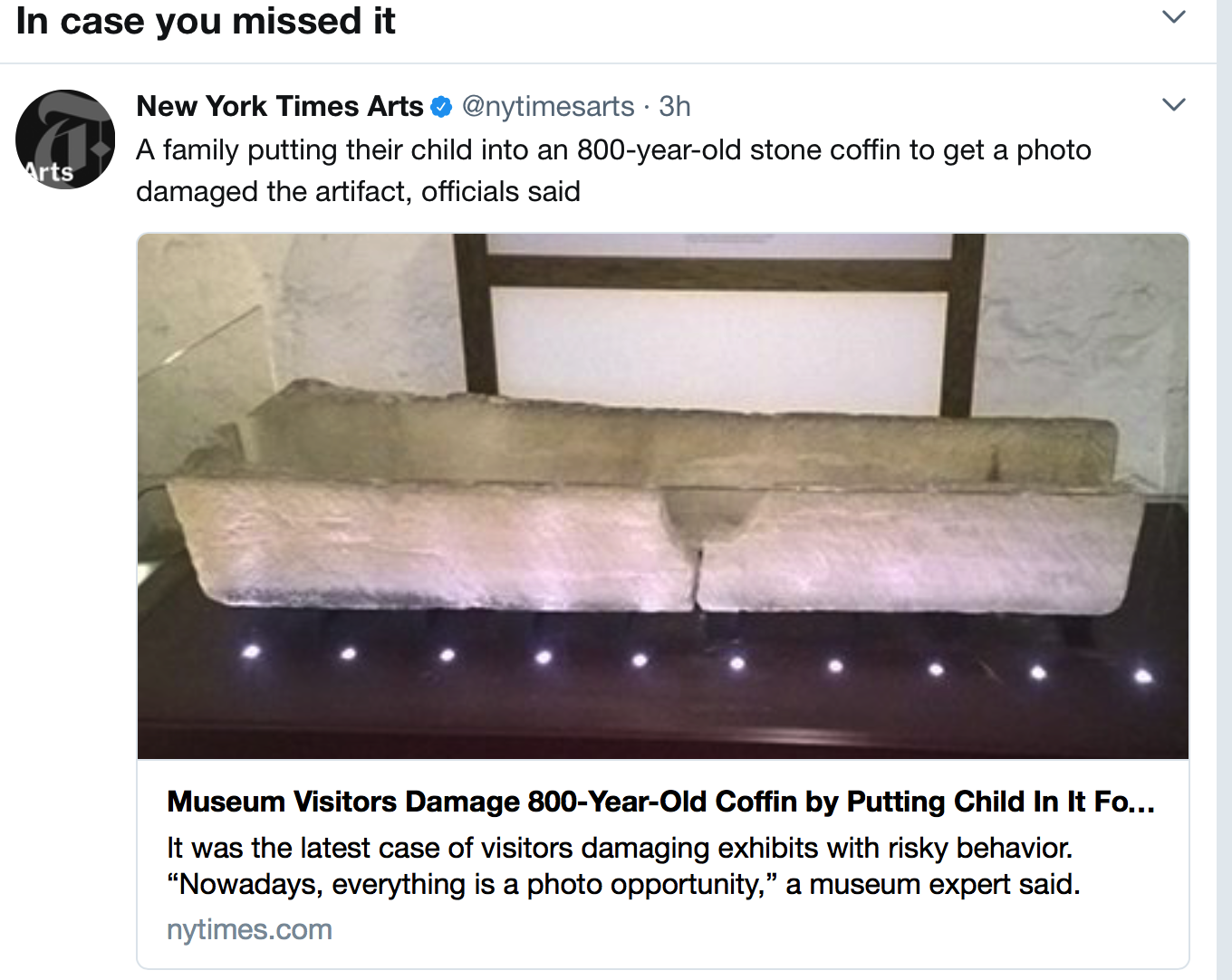
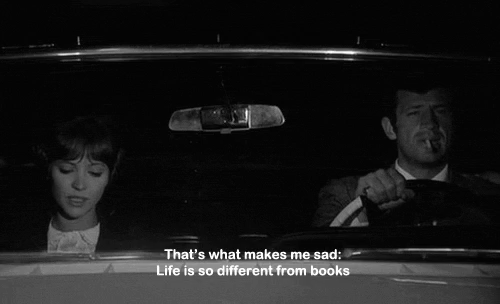
Doris Duke - "I Don't Care Anymore"

Vampyr

Kleist "On-the-Gradual-Construction-of-Thoughts-During-Speech"
Heinrich von Kleist, "On the Gradual Production of Thoughts Whilst Speaking"
ANTICIPATORY LEARNING
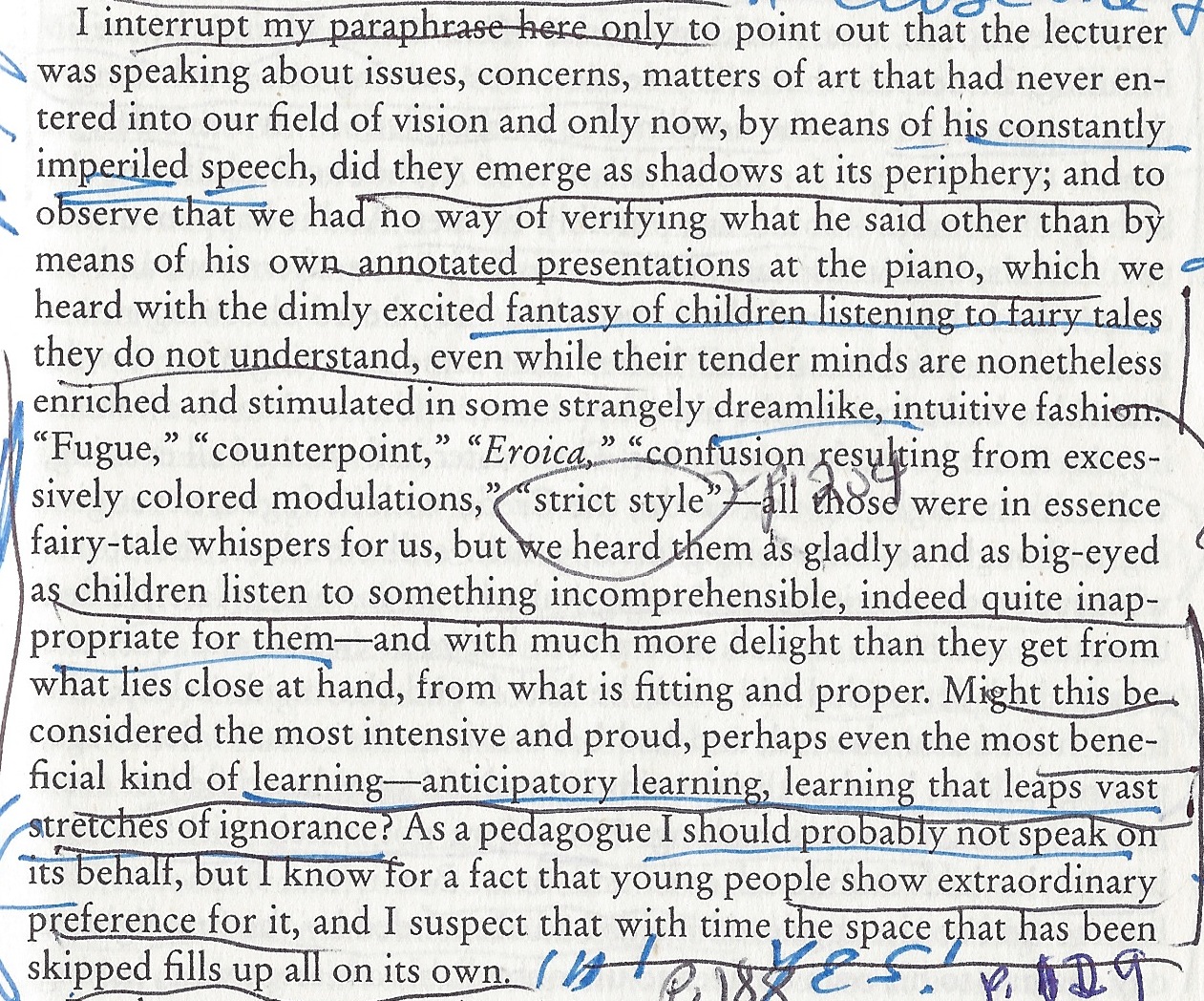
from Thomas Mann, Doktor Faustus, p. 63
Barenboim on Beethoven - Masterclass on the Sonatas time stamp 28:30
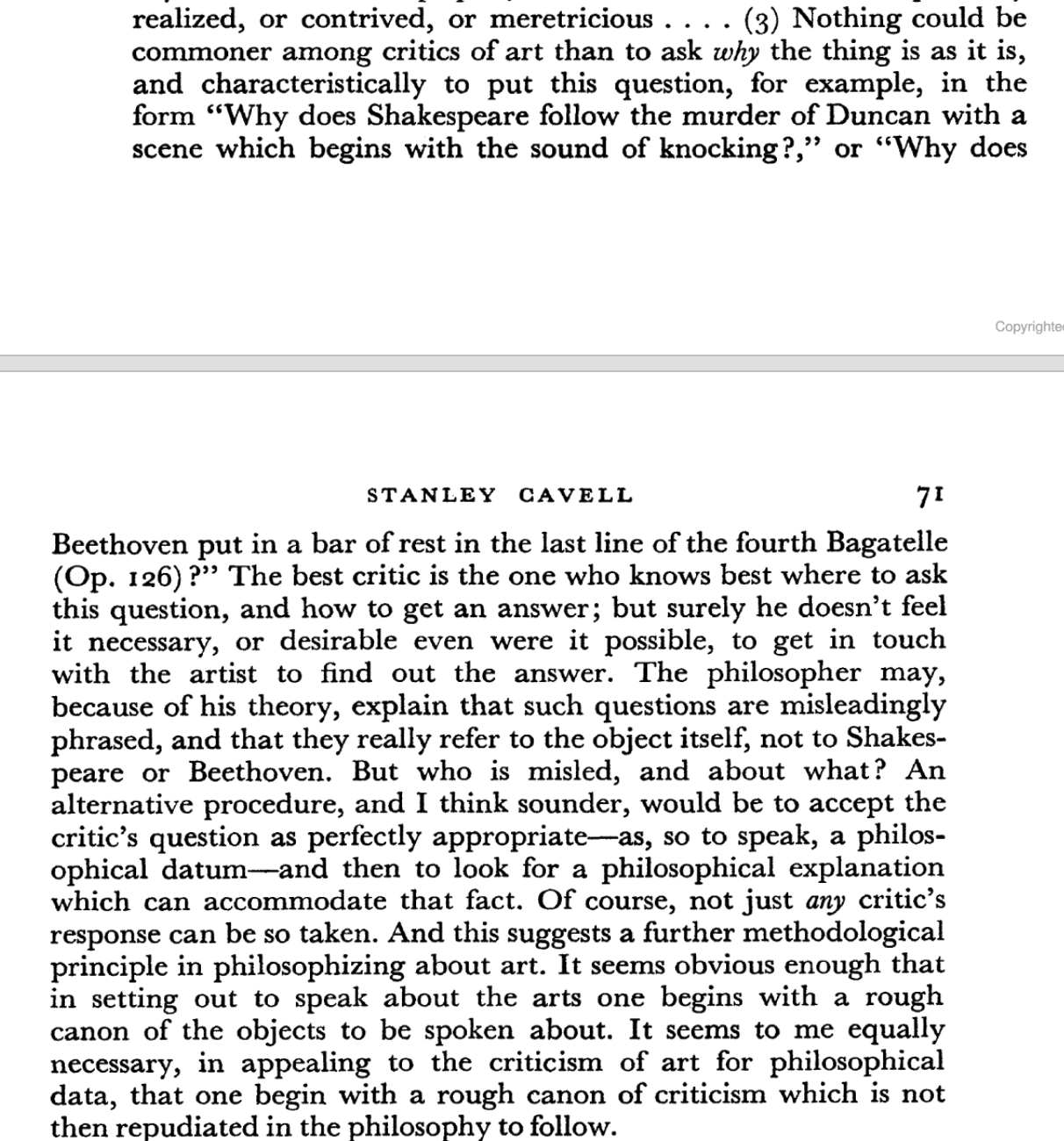
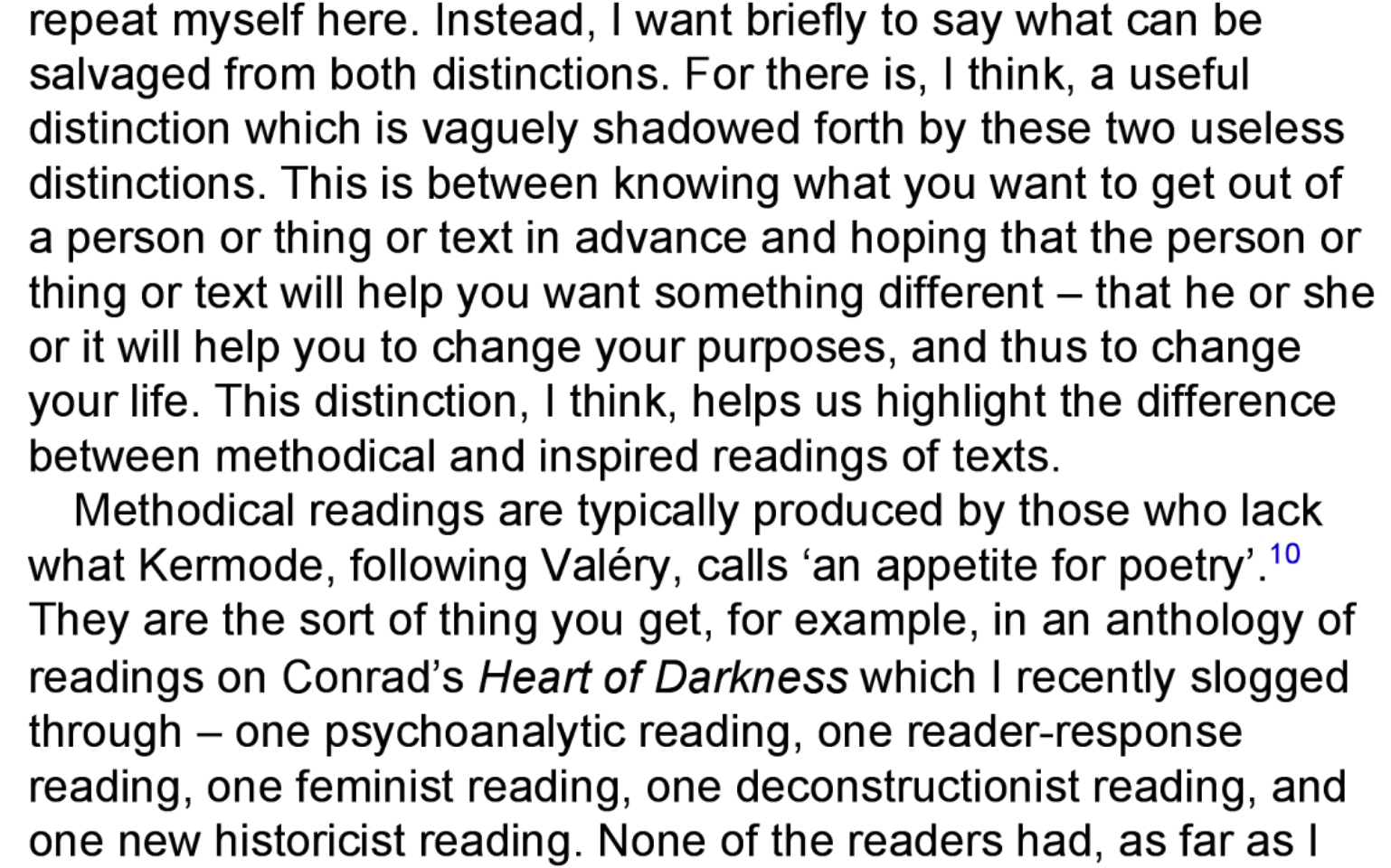
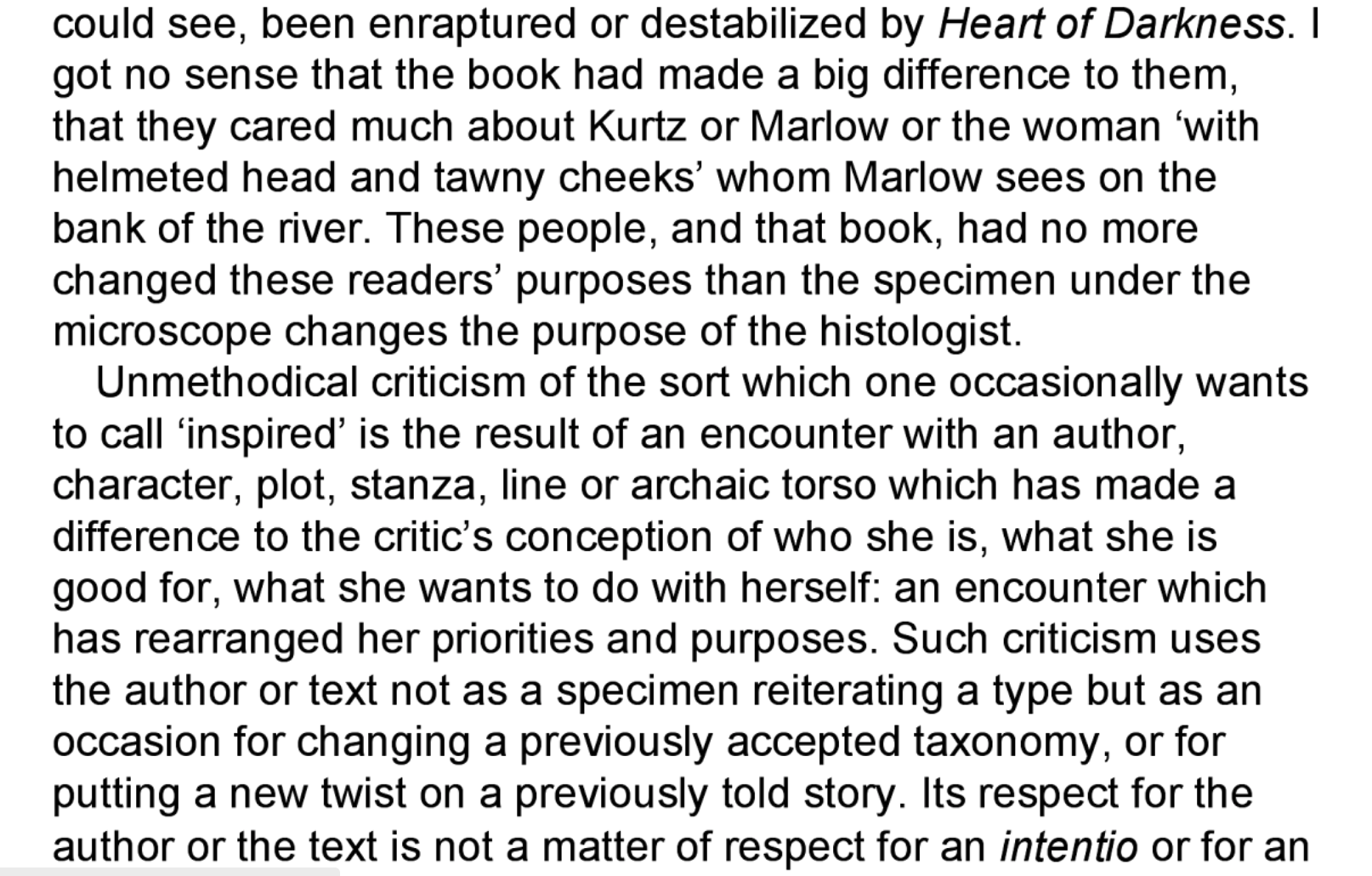

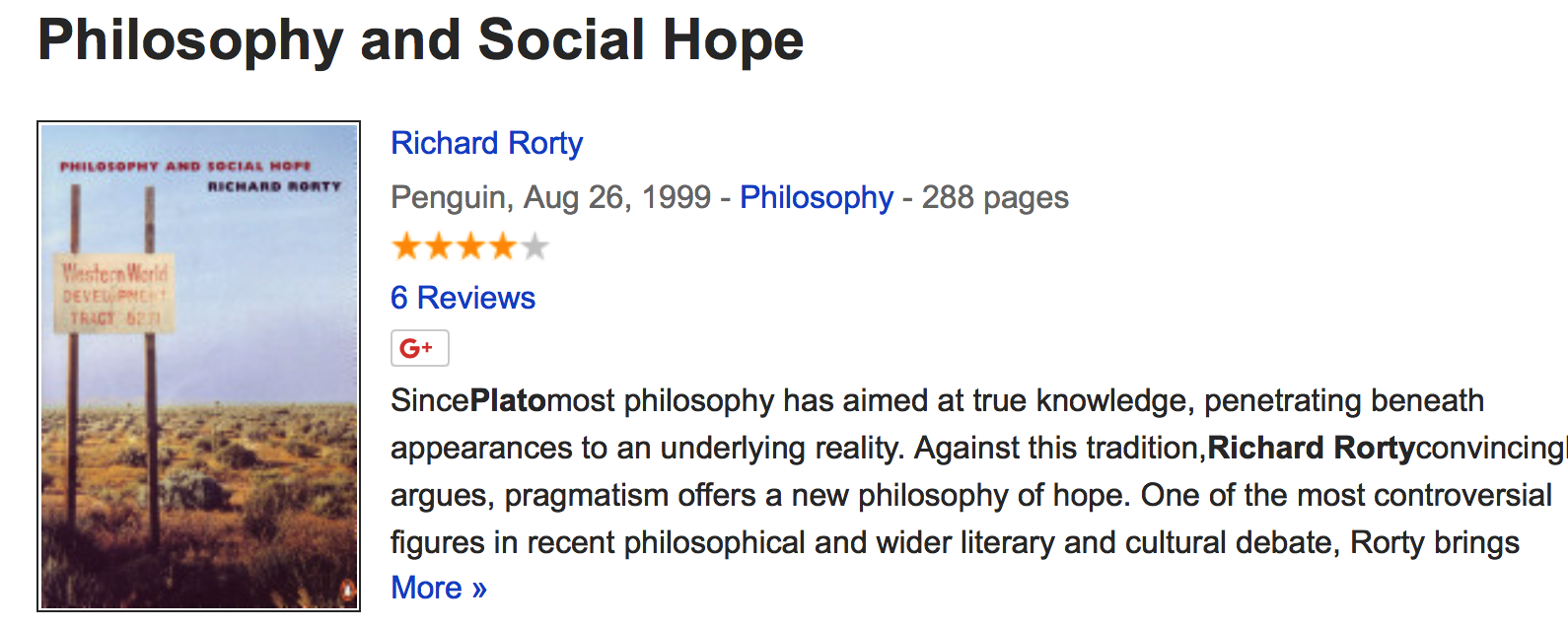
2001: A Space Odyssey "Star Gate" sequence
*Charley (Flowers for Algernon)
What can you tell from a politician's photo?
The funniest advertisement I have ever watched.
What to Make of the Age of Trump by Thomas Frank
SOUNDLESS SPEECH | WORDLESS WRITING: LANGUAGE AND GERMAN SILENT CINEMA
Crackling Campfire on the Windy Tundra of Norway (HD)
ELISABETH VINCENTELL, "The Detective Was a Performance Artist. The Evidence Is Now a Show"JUNE 26, 2017
Tony Benn - 10 min History Lesson for Neoliberals
Alain Badiou, The True Life
National Nurses United: Trump Terrifying, But Movement Must Be Built that Speaks to Issues
"Dehumanization by Deification: On Kamala Harris and "Black Women Will Save Us" Zoé Samudzi is a Black feminist writer and doctoral student in Medical Sociology at the University of California, San Francisco.
Washington Post's Disgusting Guest List At Hamptons Party
"Neither slavery nor involuntary servitude, except as a punishment for crime whereof the party shall have been duly convicted, shall exist within the United States.”
From The New Yorker
In this cogent jeremiad, which is certain to be controversial, Michaels diagnoses America's love of diversity as one of our greatest problems. Not only does it reinforce ideas of racial essentialism that it claims to repudiate; it obscures the crevasse between rich and poor. Michaels, a scholar of American literature, suggests that the growth of economic inequality over the past few decades is the result of a deeply ingrained and unchallenged class structure. Scrutinizing current events and religion, he argues that our fixation with the "phantasm" of race promotes identity over ideology, and he rejects the idea that meritocracy prevails in America's elite universities. A believer in the power of progressive politics, he calls for a debate in which class, rather than identity, would be at the fore.
"You can be black and upper middle class, you can be gay and upper class, you can be transsexual and upper class, you can be a woman and be upper middle class, you can be an immigrant and upper class, but you can't be working class and upper middle class. The University is (or was) an upper middle class institution and its culture and habitus (if you will) cannot tolerate working class culture: working class culture is what the University keeps out and what upwardly mobile students want to shed. As Walter Michaels says, they want to stop being working class. They don't want to do dangerous jobs, be poorly paid, have bad taste. . . . "
New York Times, pro-Israel advocate Bari Weiss smears Sarsour as a ‘hater’
A science of the signifier (even if still in process of development), that is, has taken its place in the work of the period and its purpose is less the analysis of the sign than its dislocation. With regard to myth, and though this is a work that is yet to be carried through, the new semiology - or the new mythology - can no longer, will no longer be able to, separate so easily the signifier from the signified, the ideological from the phraseological. It is not that the distinction is false or without its use but rather that it too has become in some sort mythical: any student can and does denounce the bourgeois or petit-bourgeois character of such and such a form (of life, of thought, of consumption). In other words, a mythological doxa has been created: denunciation, demystification (or demythification), has itself become discourse, stock of phrases, catechistic declaration; in the face of which, the science of the signifier can only shift its place and stop (provisionally) further on - no longer at the (analytic) dissociation of the sign but at its very hesitation: it is no longer the myths which need to be unmasked (the doxa now takes care of that), it is the sign itself which must be shaken; the problem is not to reveal the (latent) meaning of an utterance, of a trait, of a narrative, but to fissure the very representation of meaning, is not to change or purify the symbols but to challenge the symbolic itself.
ROLAND BARTHES, "Change the Object Itself Mythology today," Image Music Text Essays selected and translated by Stephen Heath, pp. 165 -70.
There is too much here to try to unravel. But here are some of the threads: The words “inadvertently” and “automatically,” however recondite, are ordinary; there are ordinary contexts (nontechnical, nonpolitical, nonphilosophical contexts) which are normative for their use. It may be that half the speakers of English do not know (or cannot say, which is not the same) what these contexts are. Some native speakers may even use them interchangeably. Suppose the baker is able to convince us that he does. Should we then say: “So the professor has no right to say how ‘we use’ ‘inadvertently,’ or to say that when we use the one word we say something different from what we say when we use the other”? Before accepting that conclusion, I should hope that the following consideration would be taken seriously: When “inadvertently” and “automatically” seem to be used indifferently in recounting what someone did, this may not at all show that they are being used synonymously, but only that what each of them says is separately true of the person’s action. The decanter is broken and you did it. You may say (and it may be important to consider that you are already embarrassed and flustered) either: “I did it inadvertently’’ or “I did it automatically.” Are you saying the same thing? Well, you automatically grabbed the cigarette which had fallen on the table, and inadvertently knocked over the decanter. Naming actions is a sensitive occupation. It is easy to overlook the distinction because the two adverbs often go together in describing actions in which a sudden movement results in some mishap. Suppose the baker does not accept this explanation, but replies: “I use ‘automatically’ and ‘inadvertently’ in exactly the same way. I could just as well have said: ‘I grabbed the cigarette inadvertently and knocked over the decanter automatically.’” Don’t we feel the temptation to reply: “You may say this, but you can’t say it and describe the same situation; you can’t mean what you would mean if you said the other”? But suppose the baker insists he can? Will we then be prepared to say: “Well you can’t say the one and mean what I mean by the other”? Great care would be needed in claiming this, for it may look like I am saying, “I know what I mean and I say they are different.” But why is the baker not entitled to this argument? What I must not say is: “I know what words mean in my language.” Here the argument would have pushed me to madness. It may turn out (depending upon just what the dialogue has been and where it was stopped) that we should say to the baker: “If you cooked the way you talk, you would forgo special implements for different jobs, and peel, core, scrape, slice, carve, chop, and saw, all with one knife. The distinction is there, in the language (as implements are there to be had), and you just impoverish what you say by neglecting it. And there is something you aren’t noticing about the world.”
--Stanley Cavell, "Must-We-Mean-What-We-Say?"
Austin, John. Philosophical Papers 2ed
If you need to relax . . . . (go directly to time stamp 1:54)
“Doors: On the Materiality of the Symbolic,” trans. John Durham Peters,
Grey Room .
When I Knew My Job Was Over: Beau Geste
When I Knew My Job Was OverCliffhanger escape from closing walls Star Wars and
Flash Gordon.
When I Knew My Job Was Over Das Boot. Submarine trapped on ocean floor
When I Knew My Job Was Over (Time Stamp 2:33)
Cultivating Ignorance | CORYMBUS
Tony Benn - 10 min History Lesson for Neoliberals
Alain Badiou, The True Life
"Rethinking Freud" - Adam Phillips
https://archive.org/stream/prisonerchillon00byrogoog#page/n66/mode/2up/search/darkness
Lord Byron, "Darkness" 1816
Cleanth Brooks, "History without Footnotes- An Account of Keats' Urn"
Kenneth Burke, "Symbolic Action in a Poem by Keats"
William Empson, "Thy Darling in an Urn"
Cleanth Brooks, "Postscript"
"History, Poetry, and the Footnote- Cleanth Brooks and Kenneth Burke"
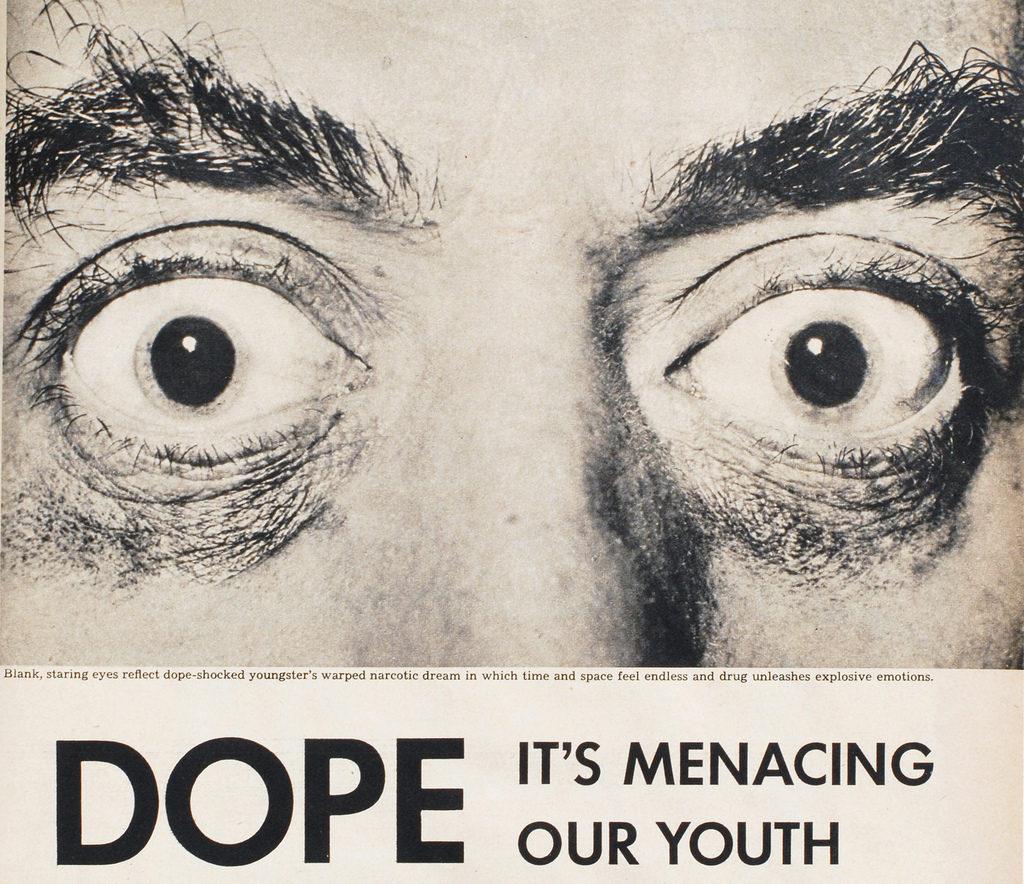
Dan Baum, Harper's, April 2016 issue "Legalize It All"

Heimlich Manuevers: Sigur Rós - Ég anda
Cyrano de Bergerac / J-P Rappeneau (Gerard Depardieu)
"My conception of this book . . . places contradictory demands on your capacities. It asks you to read both very fast and very slow . . . Wittgenstein, in Philosophical Investigations, declare it to be “of the essence of our investigation that we do not seek to learn anything new by it. We want to understand something that is already in plain view. For this is what we seem in some sense not to understand” (S89). This formulation captures the familiar fact that philosophers seem perpetually to be going back over something, something most sane people would feel had already been discussed to death. A more familiar formulation is to say that philosophy does not progress. This depends on who is doing the measuring. When I say that in the humanities more generally you have to be prepared to read fast, the idea is that you have to make yourself not so much go back over a text as go on from it. What I call slow reading is meant not so much to recommend a pace of reading as to propose a mode of philosophical attention in which are prepared to be taken by surprise, stopped, thrown back, as it were, on the text. You respond essentially oppositely to the same fact discovered in philosophy, namely, that a text worth reading carefully, or perpetually is inexhaustible. You always leave it prematurely. And a reason for leaving the text is that the next text may be more apt to illuminate it than another look at the same text. What I try to do in my work is to motivate both gestures of progress, both states of mind, going back and going on."
--Stanley Cavell, “Introduction: In Place of a Classroom” in Cities of Words, Harvard UP, 2004, 1-18; to pp. 14-15
Hilariously bad closer. "Othello's age"
Goldberg Variations Complete (J.S. Bach BWV 988), with score, Kimiko Ishizaka piano
W.K. Wimsatt, The Verbal Icon: Studies in the Meaning of Poetry (1954) "When Is Variation Elegant?"
"For Murakami, there are no fundamental differences between a writing style and a musical one." Murakami: “You can’t write well if you don’t have an ear for music."
Colin Marshall, "Music Meets Writing: On Haruki Murakami and Seiji Ozawa."
"The Rise of the Valkyries " In the alt-right, women are the future, and the problem. Seyward Darby September 2017 issue of Harper's
National Nurses United: Trump Terrifying, But Movement Must Be Built that Speaks to Issues
Why Do Women Bully Each Other at Work?
Jacques Derrida excoriating Giorgio Agamben in The Beast and the Sovereign Vol. 1, pp. 92-95 on "the first great thinker," adding "one no longer knows who was the first to define what."
Jonathan Goldberg, What's with "Firsts" in (Good) Women Studies
Review: Moderation and Its Discontents: Recent Work on Renaissance Women Reviewed Work(s): Virtue of Necessity: English Women's Writing, 1649-1688 by Elaine Hobby; Women of the Renaissance by Margaret L. King; Oppositional Voices: Women as Writers and Translators of Literature in the English Renaissance by Tina Krontiris; Writing Women in Jacobean England by Barbara Kiefer Lewalski Review by: Margaret W. Ferguson Feminist Studies, Vol. 20, No. 2, Women's Agency: Empowerment and the Limits of Resistance (Summer, 1994), pp. 349-366.

Women in power: do you know them?
Cora Kaplan, "Wild Nights: Pleasure/ Sexuality/ Feminism," in Sea Changes: Essays on Culture and Feminism
The Birth Control Handbook: The Underground Student Publication That Let Women Take Control of Their Bodies (1968)
Universal Conscription in the U.S.
Mary Russo, The Female Grotesque: Risk, Excess and Modernity (1994)
Laura Kipnis, "Stupid Sex/Higher Education"
Slavoj Zizek: "We live in an Ideological era where new form of domination is presented as freedom"
Slavoj Žižek: Political Correctness is a More Dangerous Form of Totalitarianism
From public good to personal pursuit: Historical roots of the student debt crisis
Bill making it a federal crime to support BDS
Richard Dawkins Event in Berkeley Canceled Due To His “Abusive,” “Hurtful” Words
When Women Won’t Accept Theatrical Manspreading LAURA COLLINS-HUGHES JULY 17, 2017
Mormon professor fired for pro-LGBT post 21 Jul, 2017 15:25
Amazon's Take Over Of Whole Foods Worse Than You Thought
The Betrayal by the Black Elite
https://thebaffler.com/ancestors/reflections-violence-united-states
Slavoj Zizek on Importance of Theory and Parallax View
Americans think they live in a democracy. But their workplaces are small tyrannies.
Updated by Elizabeth Anderson Jul 17, 2017, 8:20am EDT
Home > Will - Season 1 > Will - Season 1: Episode 2 - Cowards Die Many Times
La Bible de Gutenberg est dans Gallica : acte 1 Publié par Nathalie Coilly le 18 janvier 2017 dans Collections
Ludwig Wittgenstein, Philosophical Investigations
Hydriotaphia Urn Burial; or, a discourse of the Sepulchral Urns Lately Found in Norfolk
Upgrade your jail cell - for a price
Lionel Shriver's full speech: 'I hope the concept of cultural appropriation is a passing fad'
Vienna and Schubert: 'Death and the Maiden' String Quartet - Professor Chris Hogwood CBE
For knowledge sources based on analysis of economic and social class that are left of “lead with our values,” “inclusive,” “pro-transparency,” “pro-diversity” war-mongering, corporate Democrats (Obama and HRC) and their establishment processed news apparatus (NY Times, WAPO, MSNBC, and so on), you start by going to these people and outlets, among others. You can begin to find out what’s been happening in the U.S. over the past two decades and longer. Follow the links.
Lawrence Douglas, Contributor to the Guardian
David Runciman: From Tocqueville to Trump, looking back at 2016
Goldberg Variations Complete (J.S. Bach BWV 988), with score, Kimiko Ishizaka piano
Beethoven, Große Fuge (complete, Great Fugue), op. 133, string quartet (animated score)
Bach, Toccata and Fugue in D minor, organ
A classic you have to repeat to understand
around 23:00 time stamp
Austin, John - Philosophical Papers 2ed - Philosophy of Language
Stanley Cavell, "Must-we-mean-what-we-say?"
Crackling Fireplace with Thunder, Rain and Howling Wind Sounds
Robert Musil's The Man Without Qualities

SEVEN DEVELOPMENTS SINCE 1980
David Runciman: From Tocqueville to Trump, looking back at 2016
RetroVision Theater Presents A Matter of Life and Death
https://archive.org/details/Lbines-RetroVisionTheaterPresentsAMatterOfLifeAndDeath502
(Watch films on disc or streaming: UF KANOPY is free)
BBC Radio 3 Free Thinking Podcasts
How Guantánamo Diary Escaped the Black Hole
The Birth Control Handbook: The Underground Student Publication That Let Women Take Control of Their Bodies (1968)
Universal Conscription in the U.S.
Nouvelle vidéo démonstration de sécurité Air France / New Air France safety demonstration video
Air France - Making of film France is in the air

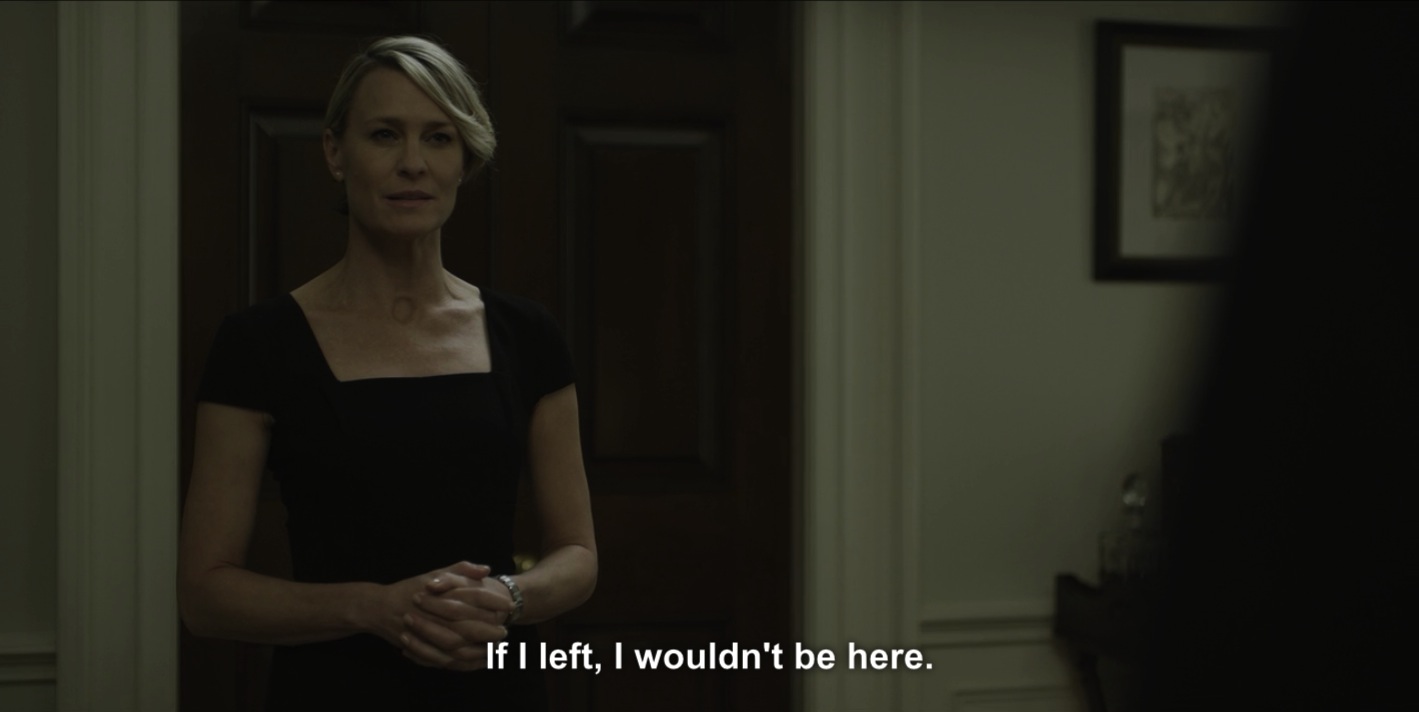
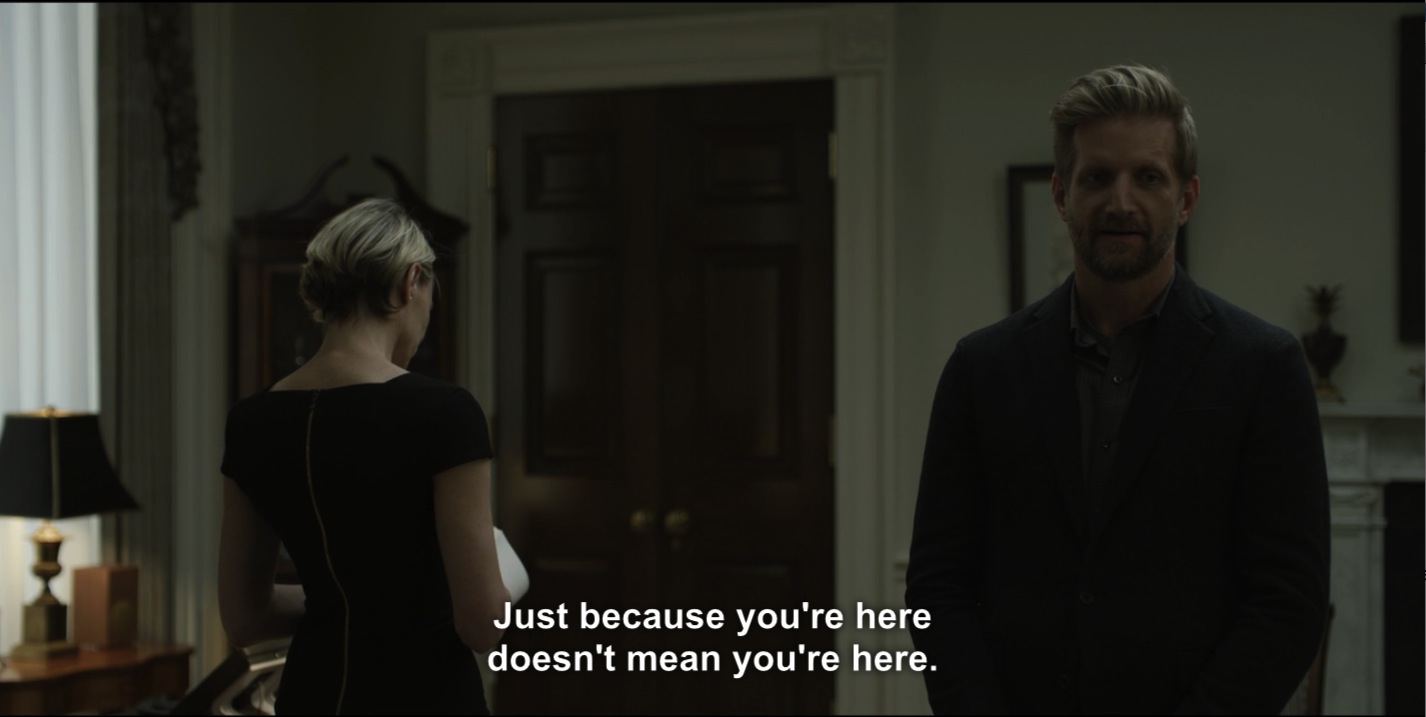

Agnotology: Culturally Constructed Ignorance Wins the Day
By Barry Ritholtz
http://bv.ms/28YUuaw
https://www.currentaffairs.org/2016/06/the-unendurable-horrors-of-leadership-camp
"The company eagerly cultivates an academic aura, and the facility is
referred to as its “campus.” The campus bookstore sells dozens of
business books, of the kind ubiquitous in airport newsstands. Typical
selections included The World’s Most Powerful Leadership Principle:
How to Become a Servant Leader (featuring a jacket blurb from the
Senior Vice President of Operations for Chik-fil-a) and Leading with
Soul: An Uncommon Journey of Spirit. Alas, they did not have my
favorite managerial tome of all time, If Harry Potter Ran General
Electric: Leadership Wisdom from the World Of Wizards, which is a
genuine, honest-to-God book that you can look up and purchase."
We must instead put ourselves to the test: whether now and in the future we will read the texts and words of the genuine philosophers in a different way than we have previously; placing higher demands on ourselves, with an enduring will to question, and with a presentiment that there is something knowable before and beyond all science; we have to put to the test whether we have learnt to read. If we can affirm that we want to read in a different way and more meditatively, then we have done enough for the moment.
Heidegger, Martin
Interpretation of Nietzsche's Second Untimely Meditation
Haase, Ullrich
Sinclair, Mark
Unzeitgemäss ist auch diese Betrachtung, weil ich etwas, worauf die Zeit mit Recht stolz ist, ihre historische Bildung, hier einmal als Schaden, Gebreste und Mangel der Zeit zu verstehen versuche, weil ich sogar glaube, dass wir Alle an einem verzehrenden historischen Fieber leiden und mindestens erkennen sollten, dass wir daran leiden. Wenn aber Goethe mit gutem Rechte gesagt hat, dass wir mit unseren Tugenden zugleich auch unsere Fehler anbauen, und wenn, wie Jedermann weiss, eine hypertrophische Tugend - wie sie mir der historische Sinn unserer Zeit zu sein scheint - so gut zum Verderben eines Volkes werden kann wie ein hypertrophisches Laster: so mag man mich nur einmal gewähren lassen. Auch soll zu meiner Entlastung nicht verschwiegen werden, dass ich die Erfahrungen, die mir jene quälenden Empfindungen erregten, meistens aus mir selbst und nur zur Vergleichung aus Anderen entnommen habe, und dass ich nur sofern ich Zögling älterer Zeiten, zumal der griechischen bin, über mich als ein Kind dieser jetzigen Zeit zu so unzeitgemässen Erfahrungen komme. So viel muss ich mir aber selbst von Berufs wegen als classischer Philologe zugestehen dürfen: denn ich wüsste nicht, was die classische Philologie in unserer Zeit für einen Sinn hätte, wenn nicht den, in ihr unzeitgemäss - das heisst gegen die Zeit und dadurch auf die Zeit und hoffentlich zu Gunsten einer kommenden Zeit - zu wirken.
http://www.magister.msk.ru/library/babilon/deutsche/nieMary Russo, The Female Grotesque: Risk, Excess and Modernity (1994)
https://www.youtube.com/watch?v=67vUWVwKRYs
Sigmund Freud,"The Taboo on Virginity"
Laura Kipnis, "Stupid Sex/Higher Education"
Tomorrow's Professor https://tomprof.stanford.edu/posting/1502
Lip synching and music videos
Lorde https://m.youtube.com/watch?v=nlcIKh6sBtc
Bryan Ferry
George Michaels
Tei Shi - "Bassically" (Official Music Video)
Structure, Scaffolding, and the Leap of Faith Indiana Jones
Charles Glass, "Nagmachons,"
Times Literary Supplement | 5th April 2016
George Steiner, “Steiner Responds to Foucault,” Diacritics 1, no. 2 (Winter, 1971), p. 59.
RetroVision Theater Presents A Matter of Life and Death
https://archive.org/details/Lbines-RetroVisionTheaterPresentsAMatterOfLifeAndDeath502
(Watch films on disc or streaming: UF KANOPY is free)
BBC Radio 3 Free Thinking Podcasts
Tomorrow's Professor https://tomprof.stanford.edu/posting/1502
You Already Know how to Read Film (Genre--you know what to expect) Example: Hostel (2005)
Performing Race:
Black Like You: Blackface, Whiteface, Insult & Imitation in American Popular Culture
Jacques Derrida, "Plato's Pharmacy"
Dickens, Charles. 1852. "A Ragged School," Harper's Magazine
"Historical, in fact philological, consider- ations have slowly but surely taken the place of profound explorations of eternal problems. The question becomes: What did this or that phi- losopher think or not think? And is this or that text rightly ascribed to him or not? And even: Is this variant of a classical text preferable to that other? Students in university seminars today are encouraged to occupy themselves with such emasculated inquiries. As a result, of course, philosophy itself is banished from the university altogether."
Nietzsche, Fredrich. 1872 anti-education Harper's Magazine
Friedrich Nietzsche,1872. ANTI-EDUCATION introduction and annotation by Paul Reitter and Chad Wellmon, translated from the German by Damion Searls
Heidegger, Martin, 1933. "The Self-Assertion of the German University and The Rectorate 1933/34: Facts and Thoughts," Review of Metaphysics 38 (March 1985): 467-502.
Auerbach, Eric. 1943. Epilogue to Mimesis: The Represenation of Reality in Western Literature
Curtius, E. R. 1947. Die auslandiche wissenschaftliche Literatur der Kriegs- und Nachkriegsjahre ist mir bis auf verschwindende Ausnahmen nicht zuganglich gewesen. Auch die Bonner Universitatebibliothek ist seit 1944 in folge eines Bombenangriffs teils unbenuntzbar, teils verbrannt. Ich habe daher manches Zitat nicht meher vergleichen, manche Quelle nicht mehr einsehen konnen. Aber wenn die literature 'das fragment der Fragmente" ist (Goethe), muss ein Versuch wie der vorleigende erst recht den Charackter des Fragmentarishcen tragen.
During the war and postwar years, I lost sight of foreign literary criticism after it vanished and was thus inaccessible to me. Also, as a consequence of an air raid in 1944, parts of the Bonn University Library were unusable or burnt. I could no longer check various citations or consult many sources. But if literature is "the fragment of fragments" (Goethe), an attempt like this one in particular must exhibit a fragmentary character.] — "Vorwort," in Europaisches Literatur und Lateinische Mittelater, (my translation; not translated in the English edition of 195
Curtius, E. R. 1953. I have tried to show that humanistic tradition is from time to time attacked by philosophy. It may suffer a serious setback from these aggressions. Many signs seem to point to the fact that we are faced once more with an incursion of philosophers, existentialists... "Appendix: The Medieval Bases of Western Thought," European Literature in the Latin Middle Ages, 592.
De Man, Paul. 1983. As a control discipline . . . philology represents a store of established knowledge; to seek to supersede it . . . is without merit. "Heidegger's Exegeses of Hölderlin," Blindness and Insight, 263-4.
Readings, BiIl. 1997. The University in Ruins. Harvard University Press.
Derrida, Jacques. 2001. "The University Without Condition," originally delivered as a Presidential Lecture at Stanford University in 1998. Its title was "The Future of the Profession or the University Without Condition (Thanks to the 'Humanities,' What Could Take Place Tomorrow)." This version can be found in Jacques Derrida and the Humanities: A Critical Reader, ed. Tom Cohen (Cambridge: Cambridge Univ. Press, 2001), 24-57. A slightly altered version, recast as an essay, appeared as "The University Without Condition" in Jacques Derrida, Without Alibi, trans. Peggy Kamuf (Stanford: Stanford Univ. Press, 2002), 202-37. The French original is L'université sans condition (Paris: Galilée, 2001).
Derrida, Jacques. 2002. Who's Afraid of Philosophy: Right to Philosophy 1 trans. Jan Plug. Stanford Univ. Press,
Derrida,Jacques. 2004. Eyes of the University: Right to Philosophy 2 trans. Jan Plug. Stanford Univ. Press,
When do you have to go outside the text in order to understand it? Philology (history through etymology)
Philology as entry into history and culture: Life / Sex Life / End of Life = life, sex, and death=civilization
When do you have to go outside the text in order to understand it? Philology (history through etymology)
Genetic Fallacy?
When and under what conditions does knowing something about a writer's biography or the time he or she was writing make a difference to your reading of what he or she wrote?
Jacques Derrida, "Signature Event Context"
One fact that has to be assimilated by both Labour and the Democrats is this: when Bill and Hillary arrived in Washington in 1992 they had little money. Now, despite remaining notionally in public service throughout, they are worth many millions of dollars. Tony and Cherie Blair were not obscenely wealthy when they arrived in power in 1997. Today they are worth more than $75 million. Consider the working-class voters whom the Clintons or the Blairs exhorted to vote for them in the 1990s: they are probably worse off now than they were then. In effect the Clintons and Blairs surfed on their grievances and inequities, making themselves rich and leaving their voters in the dust. This hasn’t gone unnoticed, which is one reason the old politics is no longer working.
http://www.lrb.co.uk/2016/11/14/rw-johnson/trump-some-numbers
http://www.lrb.co.uk/v38/n23/david-runciman/is-this-how-democracy-ends
Reading is a vice which can replace all other vices or temporarily take their place in more intensely helping people live, it is an aberration a consuming passion. No, I don’t take any drugs, I take books, of course I have certain preferences, many books don’t suit me at all, some I take only in the morning, others at night, there are books I don’t ever let go, I drag them around with me in the apartment, carrying them from the living room into the kitchen, I read them in the hall standing up, I don’t use a bookmark, I don’t move my lips while reading, early on I learned to read very well, I don’t remember the method, but you ought to look into it. They must have used an excellent method in our provincial elementary schools, at least back when I learned to read.
--Ingeborg Bachmann, Malina: A Novel, trans. Philip Boehm (Teaneck, NJ: Holmes & Meier, 1990), 57-58.
Jacques Derrida, "Eating Well"
Jacques Derrida Interview on writing as food or drugs
STEAM (not STEM) "A" stands for "Arts," as in Liberal Arts
Farhenheit 451 paratext
Juan Luis Borges, "Pierre Menard, Author of Don Quixote"
Carlo Ginzburg, Clues
Martin Scorcese on pan and scan versus letterboxing
Warner Brothers high def website; Toshiba's "dead" website The Look and Sound of Perfect HD-DVD website (YouTube trailer)
Carlo Ginzburg, Clues
Walter Benjamin, "The Work of Art in the Age of its Reproducibility"
Jacques Derrida in Ghost Dance
Avital Ronell on the examined life
Sigmund Freud, "Dreams and Telepathy"
Sigmund Freud, "Psycho-analysis and Telepathy"
Sigmund Freud, "Mourning and Melancholia"
Sigmund Freud, Beyond the Pleasure Principle standard edition
Jacques Derrida on invention and illegality
Jacques Derrida in Ghost Dance
Avital Ronell on the examined life
Friedrich Schlegel, "On Incomprehensibility"
The Idiocy of Identity Politics
Sheldon Pollock, "Future Philology? The Fate of a Soft Science in a Hard World"
"How DNA Changed the World of Forensics" NY Times, May 18, 2014
Carlo Ginzburg, “Clues: Morelli, Freud, and Sherlock Holmes,” in History Workshop, No. 9 (Spring, 1980), pp. 5-36.
Paolo Cherchi Usai, David Alexander Horwath, Michael Loebenstein, ed. Film Curatorship: Museums, Curatorship and the Moving Image (chapter three, pp.107-29)
"How DNA Changed the World of Forensics" NY Times, May 18, 2014
Optional Reading: D.A. Greetham, "Textual Forensics"; Sir Arthur Conan Doyle, "A Case of Identity" (1899) and "The Adventure of the Cardboard Box" (1893); Sigmund Freud, "The Moses of Michelangelo" (1914) Standard Edition, 13: 209-238. Digital "Exploded Manuscript" of Freud's essay.
